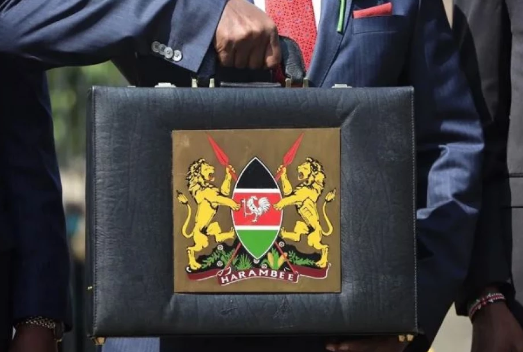Kenya’s creative industry stakeholders have expressed concerns about certain clauses in the Finance Bill 2024, which they believe could severely hinder the sector’s growth.
In a collective memorandum dated June 6, representatives from the industry highlighted specific proposals within the Bill that they believe could have serious consequences for the creative sector, creating an unfavorable environment for creatives.
They argue that despite contributing 5% to the national GDP, the government appears to be backtracking on its commitment to supporting the growth of the creative industry.
One particular proposal they aim to address is the amendment to the First Schedule of Cap 472- Part II Excisable, which seeks to increase excise duty on airtime and data. They contend that this clause could stifle the growth of the digital economy and directly impact creative businesses.
“For example, all musicians on SKIZA will now receive less revenue because Skiza is traded in airtime and the payments are made net of applicable taxes. We recommend that VAT and Excise on airtime internet and data be waived as this Is not a value-added product.”
The second clause they want to be scrapped is the proposal to charge eco levy on video cameras, SD cards, CDs, microphones and other sound recording equipment included in Section 45.
“This will further increase the cost of doing business in this sector by increasing the cost of inputs,” they say.
They also want the Ksh.24,000 monthly relief from withholding tax proposal highlighted in Clause 25 (D) to be deleted, proposing to have the relief limited to be raised to Ksh.49,999.
“This will directly impact the growth of smaller and younger creators working in our sector by making it harder for them to reinvest in their craft,” they added.
Likewise, the sector wants the 1.5% Digital Service Tax in Clause 8 to be replaced with a Significant Economic Presence (SEP) Tax at 20% of Gross Turnover.
“We anticipate that global platforms working in Kenya will now reduce their investment in Kenyan-made content and this will cause job losses. We recommend that there be a fiat tax rate of 6% charged on profits and that the VAT currently charged on payments to these platforms be removed.”
Lastly, they want to amend the First Schedule to Cap 470, clause 6 and remove exemptions for amateur sports organizations.
“We would like to remind the National Assembly that amateur sports represents over 90% of Sports in Kenya and provide the foundations of the creation and development of a sports-based economy,” they note.
According to their perspective, they believe that the current exemptions should be broadened to align with the objectives of the Talanta Hela initiative under the Ministry of Sports.
The Finance Bill 2024 has faced strong opposition from various sectors of Kenyan society, including multinational corporations, digital taxi operators, opposition leader Raila Odinga, and telecommunications giant Safaricom. They argue that the Bill will negatively impact investments and government programs.



